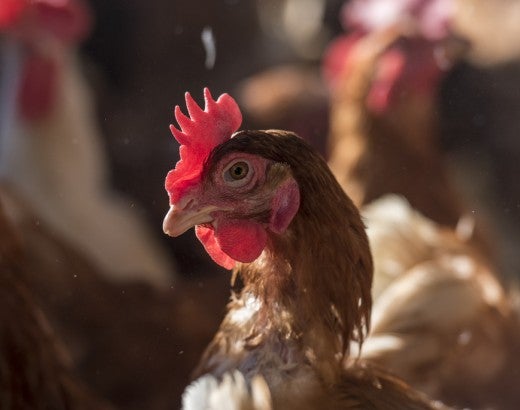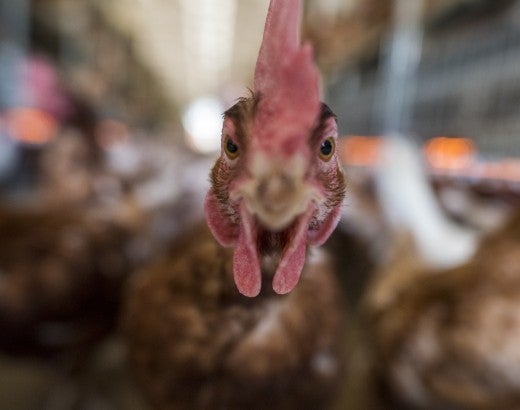Utah has just passed a law prohibiting the confinement of egg-laying hens in tiny wire enclosures known as “battery cages,” becoming the eighth U.S. state to do so.
Just moments ago, Gov. Spencer Cox signed the bill—which the state’s legislature passed earlier this month—marking another major milestone in our campaign to move all egg-laying hens out of cages and into cage-free housing. The new law mandates cage-free conditions and more space for each bird. It also requires enrichments that are vital to the hens’ psychological and physical well-being, including perches, nest boxes, and areas designed for scratching and dust-bathing.
Utah joins a growing list of states where lawmakers and voters, regardless of political affiliation, have prohibited battery cages. This includes Michigan, Oregon, Washington, Massachusetts, California, Rhode Island and Colorado.
This is a particularly exciting moment for us: the Humane Society of the United States has been working relentlessly--and strategically--to transform how egg-laying hens, more than 300 million each year, are raised in this country. We have focused on confinement because since the advent of battery cages decades ago, hundreds of millions of hens have been suffering in these tiny, barren cages so small that they can’t even spread or flap their wings.
Given the scale of this problem, this has been an uphill battle, but we have pressed on with your support. As a result, today we are in the midst of a cage-free revolution. More and more, consumers are demanding an egg industry shift to cage-free, lawmakers are making policy to end cage confinement, and corporations and egg producers are moving to change their practices and embrace cage-free housing.
When we started our cage-free campaign in 2005, the percentage of hens in cage-free environments was in the low single digits. Now, almost 30% of the egg industry is cage-free, representing nearly 100 million hens per year who otherwise would have been caged. This may be the greatest reduction of farm animal suffering in U.S. history.
We recognize that we still have a long way to go and that moving to cage-free systems doesn’t address all animal protection concerns, including partial beak amputation and the routine killing of day-old male chicks. But the freedom of movement and the mandated enrichments do improve the hens’ quality of life significantly.
We are deeply grateful to all the Utah legislators from both parties who voted for the measure ending cage confinement. Some of these lawmakers worked tirelessly to bring together a diverse array of stakeholders to support the legislation. We’re also appreciative of those in the egg industry who worked with us over the past year to find common ground. These egg producers are sincerely working to transform their industry and animal husbandry practices in order to meet consumer expectations. We’re proud of this collaboration, and we’ll never stop working with unconventional allies to make major strides for animals.
This is critical work, and it’s far from over, but we are thrilled about how far we have come. Let’s take a moment to celebrate today’s victory in Utah, even as we pledge to keep working with lawmakers and pressuring corporations until no chicken is ever confined in a cage.



